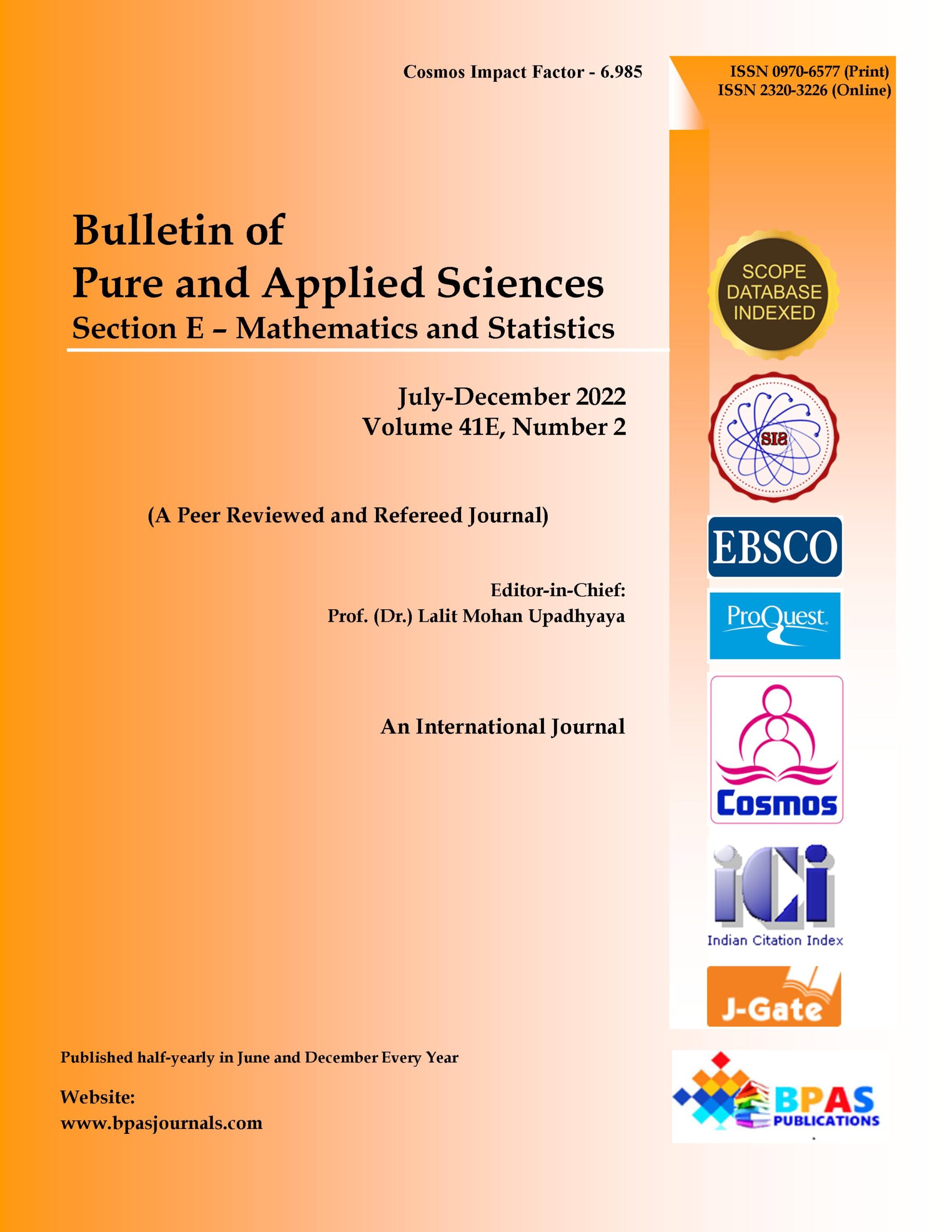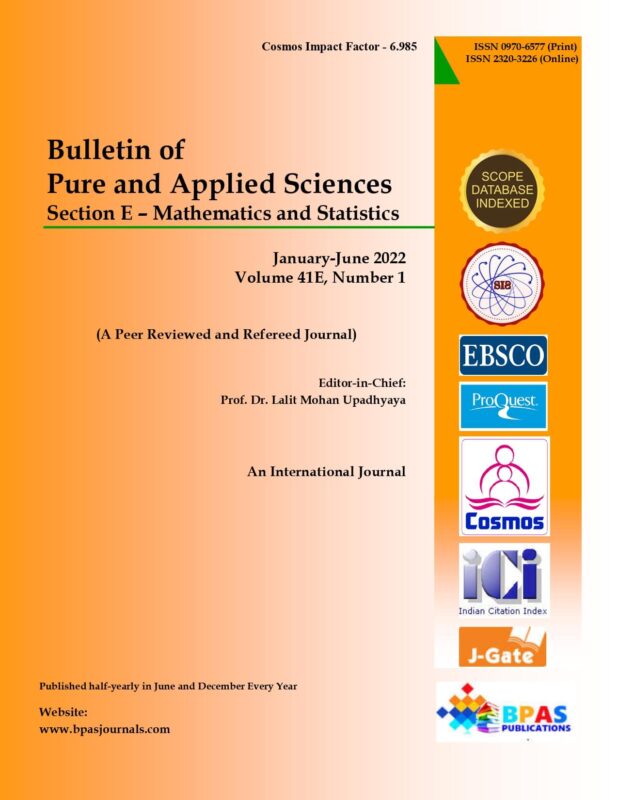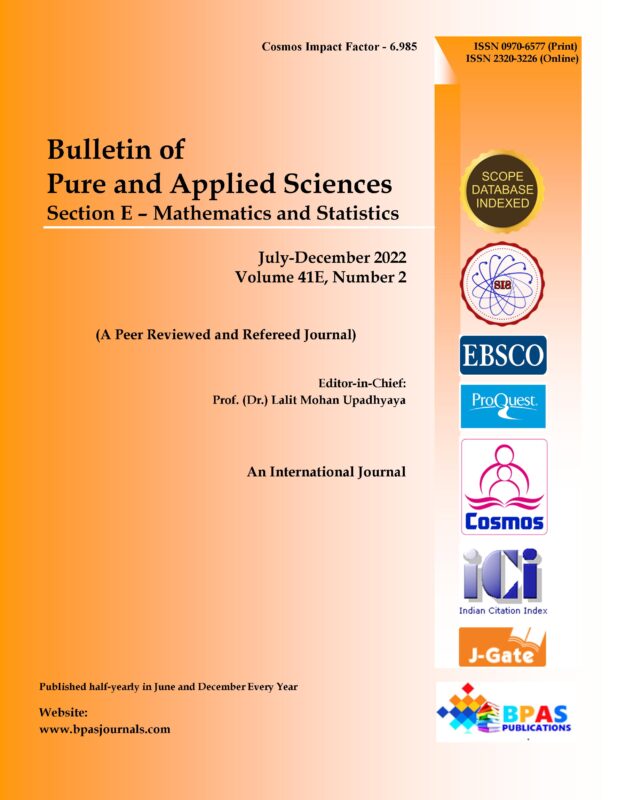On The Diophantine Equation 8^α+〖67〗^β=γ^2
9.38$
1Sudhanshu Aggarwal*, 2Lalit Mohan Upadhyaya
Bulletin of Pure and Applied Sciences
Section – E – Mathematics & Statistics
Vol. 41E, No.2, July-December 2022.P.153-155
DOI: 10.5958/2320-3226.2022.00020.0
Original Article
Description
On The Diophantine Equation 8^α+〖67〗^β=γ^2
1Sudhanshu Aggarwal*, 2Lalit Mohan Upadhyaya
Author’s Affiliation:
1Department of Mathematics, National Post Graduate College, Barhalganj, Gorakhpur-273402, Uttar Pradesh, India
E-mail: sudhanshu30187@gmail.com
2Department of Mathematics, Municipal Post Graduate College, Mussoorie, Dehradun-248179, Uttarakhand, India
E-mail: lmupadhyaya@rediffmail.com, hetchres@gmail.com
*Corresponding Author: Sudhanshu Aggarwal, Department of Mathematics, National Post Graduate College, Barhalganj, Gorakhpur-273402, Uttar Pradesh, India
E-mail: sudhanshu30187@gmail.com
How to cite this article: Aggarwal S., Upadhyaya L.M. (2022). On The Diophantine Equation . Bull. Pure Appl. Sci. Sect. E Math. Stat. 41E(2), 153-155.
Received on 15.09.2022/ Revised on 20.11.2022/ Accepted on 30.11.2022
Online First Published on Dec 15, 2022 at https://www.bpasjournals.com/



